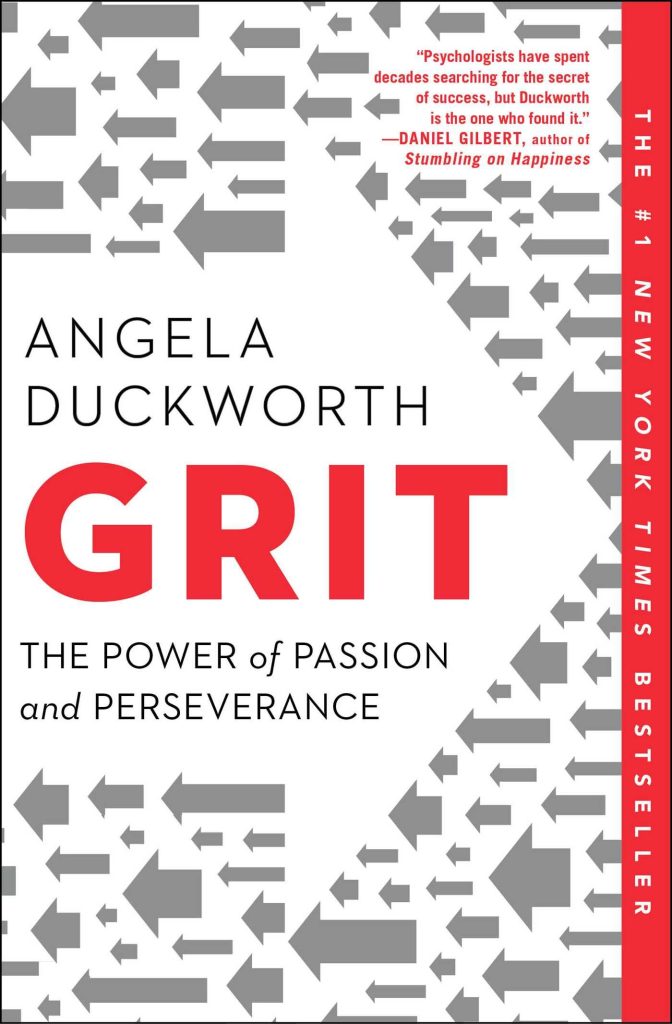My First Encounter with Grit
I first came across Angela Duckworth’s Grit during my university years. At that time, like many students, I often asked myself: Am I smart enough? Do I have what it takes to succeed in such a competitive world? Reading this book shifted my perspective entirely. Duckworth, a psychologist and professor at the University of Pennsylvania, made a compelling case that success is less about talent and more about a combination of passion and perseverance, what she calls grit.
Ever since, the concept of grit has shaped how I train for triathlons, how I pursue professional challenges, and even how I handle setbacks in life. In this article, I’ll share a detailed review of the book, the psychology behind grit, and how you can apply it to your own journey.

What is Grit?
Angela Duckworth defines grit as the combination of sustained passion and perseverance toward long-term goals. Unlike talent, which is innate, grit is something we can cultivate.
She emphasizes two key components:
-
Passion: Not just fleeting interest, but a deep sense of purpose that keeps you focused over years.
-
Perseverance: The resilience to keep going despite challenges, boredom, or setbacks.
In essence, grit is what keeps you moving forward when motivation fades, when obstacles arise, and when progress feels painfully slow.
Key Ideas from the Book
1. Talent vs. Effort
Duckworth challenges the common belief that talent alone determines success. Instead, she proposes the Effort Counts Twice Equation:
-
Talent × Effort = Skill
-
Skill × Effort = Achievement
In other words, effort is the multiplier that transforms raw ability into real accomplishments.
2. The Four Psychological Assets of Grit
She identifies four key elements that gritty people cultivate:
-
Interest: A genuine fascination with what you do.
-
Practice: Consistent, deliberate practice to improve.
-
Purpose: Connecting your work to something beyond yourself.
-
Hope: Believing in your ability to keep going, even when things are hard.
3. Grit is Grown, Not Born
Duckworth’s research shows that grit is not fixed. It can be nurtured by building habits, adopting growth mindset beliefs, and surrounding yourself with a supportive culture.
4. Culture Matters
Grit is not just an individual trait. It thrives in environments such as schools, workplaces, and families where resilience and effort are valued.
My University Reflection: When Grit Hit Home
Back in university, I struggled with long nights of studying, difficult exams, and the constant comparison with peers who seemed smarter or more confident. Reading Grit helped me realize that my performance did not depend solely on natural intelligence.
For example, I remember taking a geoscience class where the material felt overwhelming. Instead of giving up or comparing myself to “naturals” in the subject, I decided to apply Duckworth’s principle of deliberate practice. Every day, I would review a small section, test myself, and keep a study journal. It was not glamorous, in fact it was tedious, but over time, my grades improved dramatically.
That experience convinced me that perseverance could truly outweigh initial talent. It was a lesson that has stayed with me.
Applying Grit Beyond University
Over the years, I’ve found that grit is not just for academics. It is a mindset that applies across all areas of life.
1. Career and Work
When I entered the professional world, I quickly realized that projects rarely go smoothly. Whether leading sustainability initiatives or building new ventures, obstacles are inevitable: shifting priorities, limited resources, or skepticism from others. Grit reminded me to keep sight of the bigger purpose and keep pushing.
2. Training for Triathlons
Endurance sports are grit in action. Training for an Ironman or marathon is not about having the talent to swim, bike, or run. It is about showing up every day, even when your muscles ache or motivation dips. Passion fuels the love for the sport, but perseverance is what carries you across the finish line.
3. Personal Growth
From meditation practice to writing, grit has shaped my daily routines. For example, I’ve kept up journaling and reading as habits for years, not because they always feel exciting, but because I know the long-term benefits compound.
Why Grit Matters More Than Big Wins
In a world that glorifies overnight success stories, Duckworth’s work is a refreshing reminder that tiny, consistent wins are more powerful than short bursts of talent.
-
Grit helps you embrace failure as part of the process.
-
It reminds you that passion is not about intensity, but about consistency.
-
It keeps you focused on the long game, even when short-term progress feels invisible.
Practical Ways to Cultivate Grit
Based on Duckworth’s research and my own experiences, here are actionable steps to build grit in your life:
-
Find Your Interest: Explore until you find something that excites you enough to commit.
-
Set Long-Term Goals: Think years, not weeks. Write them down.
-
Break Goals into Daily Habits: Success comes from consistency, not intensity.
-
Practice Deliberately: Focus on weaknesses, seek feedback, and refine.
-
Connect to Purpose: Ask how your work contributes to others.
-
Develop a Growth Mindset: See setbacks as opportunities to learn.
-
Surround Yourself with Gritty People: Culture shapes persistence.
Criticisms and Limitations of Grit
No book is without its critics. Some argue that Duckworth overemphasizes grit and underplays external factors like privilege, systemic barriers, or luck. While these critiques are valid, I believe grit remains a valuable mindset. It does not solve every inequality, but it empowers us to maximize what we can control.
Living a Gritty Life
Looking back, reading Grit during university was a turning point for me. It gave me the confidence to pursue challenges that once felt impossible. Today, whenever I face setbacks in work, sports, or personal life, I hear Angela Duckworth’s words reminding me: talent counts, but effort counts twice.
If you are a student wondering if you are “smart enough,” or a professional doubting if you can handle the grind of your career, I encourage you to pick up this book. Apply its lessons consistently, and you’ll find that grit may just be the hidden force shaping your success.

